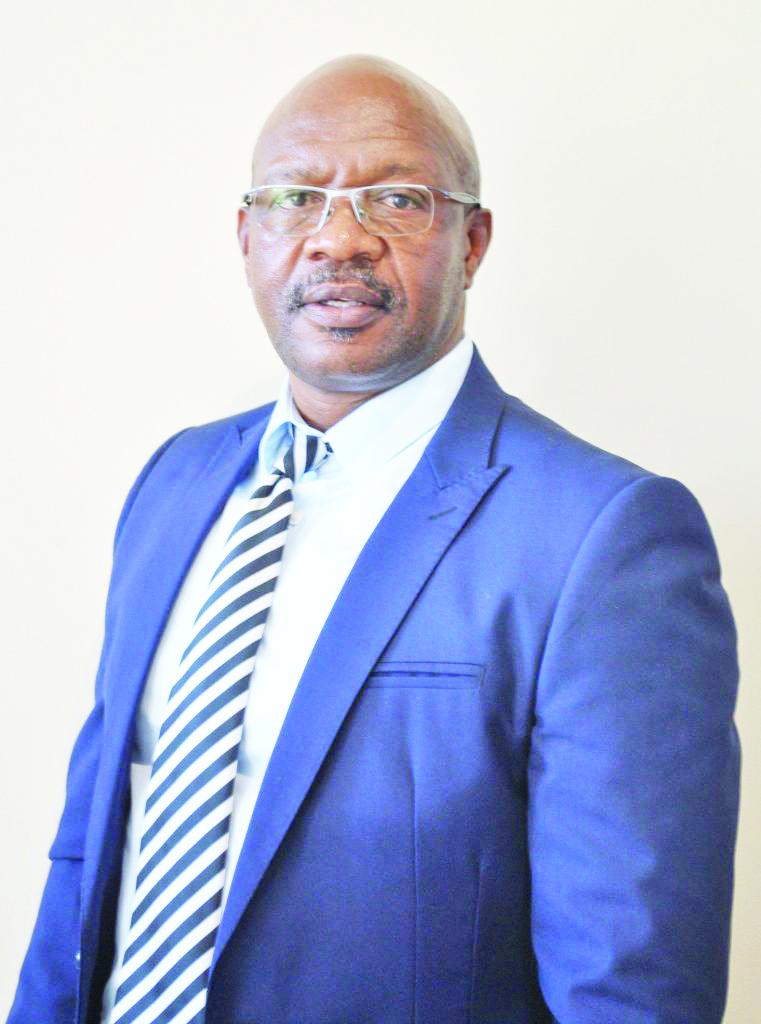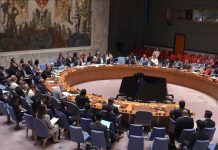Africa-Press – Lesotho. Maqhubu World Trade, a Mosotho-owned import and export company registered in the country and in Sweden, has refuted claims of dishonesty in its firearms procurement deal with members of the National Security Services (NSS).
In addition to selling arms and running competency programmes, the company has several security components that include surveillance, close protection, and escorts.
Managing Director, Phakiso Molise, confirmed his involvement in the scheme, saying “I coordinated the project, as a seller and on behalf of the manufacturer.
” He is, however, reported to be at the centre of the deal with the country’s spy agency but has failed to honour it, fleecing members in the scheme.
Molise denied this in an interview with this paper, saying he has neither reneged on the agreement in question nor profited unduly from the scheme. He insists he has throughout the entire dealings acted “solely on business grounds and has not swindled anybody.
”
Maqhubu was registered in Lesotho in 2010 but didn’t start operations upon founding, because managing director, Phakiso Molise, had left the country having survived an assassination attack. It was then registered in Sweden upon his arrival there in 2012.
At the end of 2017 Molise returned to Lesotho and operations began, and it was at this time that the arms scheme, conceived in 2014 with the Lesotho Police Staff Association (LEPOSA) and the Lesotho Correctional Services (LCS) staffers association, was kickstarted.
The LCS association would later collapse, jeopardising the scheme, but LEPOSA went through while the NSS had some internal coordination problems as they did not have an association.
Initially the LCS came into the picture to replace the NSS members who left the scheme, and Public Eye has established that the LCS members are on their own scheme, and that the expected weapons will cover the whole range of customers.
According to the former Lesotho Mounted Police Services Second Lieutenant, the initial contract was for 250 pistols ordered for 250 members of the NSS; and the method of payment agreed upon was for the officers to take personal loans from their banks for deposits and final payments would be made after the members had inspected the goods at the manufacturer’s site.
Molise claims this arrangement was changed without his knowledge or that of the company, revealing that they then opted for monthly instalments through the NSS Burial Scheme account.
“Problems erupted when more than 150 members were allowed to pull out four months later.
The order had already been made and secured at the manufacturer’s and it became difficult to pay for the rest of the ordered firearms,” Molise told this publication. At a crossroads, Maqhubu, together with some members of management began looking for finances for the project without success.
Eventually members of the LCS were invited to join the scheme to replace the initial 150 members who withdrew their orders, and Molise says that but “unfortunately we were caught up in Covid-19 restrictions and couldn’t proceed successfully.
”
“I can’t divulge who actually had been involved because I have learned that people are nowadays out to victimise others. Let it be the Maqhubu World Trade project, and in that company let everything fall on Phakiso Molise’s shoulders,” he continued.
He charges it is for this reason that his detractors are approaching the local media to tarnish his name, “and these are people who have nothing to do at all with the NSS”.
“They are bringing these issues up to derail me when I perform my noble duty at the Lesotho Communications Authority (LCA), you will also notice that even your paper has been running Molise.
This will be the third publication in row,” he said. Public Eye reported a fortnight ago on revelations that Molise, an LCA board member, converted the authority’s funds to personal use.
Molise, an ex-convict, was appointed to the LCA board in October 2018 in what his critics say was a breach of the Communications Act of 2012 by the then Minister of Communications, Science and Technology, Chief Thesele ’Maseribane.
According to letters exchanged between Molise and the then LCA board chairperson, Motšelisi Ramakoae, in September and October 2019, Molise missed a trip to the United Kingdom (UK) for training and converted over M60 000 in per diem money for personal use.
Molise told this paper he repaid the money in question and notified the LCA accordingly. Molise blames all delays in fulfilment of the contract on changes made in the original agreement and the emergence of the Covid-19 restrictions which halted business, transport and travel arrangement throughout the globe.
He, however, says those are over now and “we are awaiting delivery any time from now. ” “I have since been refunding members who no longer want guns, but my main challenge has been that they are being refunded from my other sources as their money is tied up to their order.
“So, logically they cannot all be paid at the same time but they are still being paid and some even took settlement agreements.
Some opted for court settlement, which doesn’t make a difference because the intention is to pay them back or for them to take their guns when they arrive,” Molise explains.
He says delivery is due in a few weeks, and that those who want their weapons will get them while others will be refunded upon the sale of the extra firearms. Contacted, the LCS Public Relations Office would not readily confirm the involvement of members of the correctional services in the Maqhubu deal.
“This is a security matter involving personal firearms of individuals and has to be treat cautiously” according to Public Relations Officer Assistant Superintendent Ntomane who, however, promised to get back to this paper with the information sought.
This paper had wanted to establish the number of the LCS officers involved in the firearms deal, how have received their weapons and whether those who pulled out have indeed been refunded.
But Molise says, “I would not say I owe these people; we have a transaction that I have to settle to bring to rest our agreement with the NSS staffers pending delivery.
The LCS members who are on monthly instalment payment were still being refunded on a monthly basis until the past three months when the current delivery was finalised.
”
“There are about 50 members on the NSS scheme and about 40 members of LCS still on board,” he said.
Continued inquiries by Public Eye into the NSS deal further unearthed that a section of members of the Lesotho Defence Force (LDF) who had set up a similar scheme to acquire personal firearms are also crying foul.
They have not received all their ordered guns and they are demanding their money back from the company they had engaged. According to findings, the soldiers set up their scheme some time in 2019 with receipt of the firearms set for a period less than six months from date of order.
The LDF Public Affairs Office confirmed knowledge of the transaction between the army men and a local company in 2019, with spokesperson Captain Sakeng Lekola revealing that part of the expected consignment was delivered the same year.
“Although I cannot recall the makes of the firearms off-the-cuff I can confirm that part of the ordered consignment was delivered and these soldiers were waiting for the remaining part of the order, which I have been made to understand is already in neighbouring South Africa and will soon be here,” Captain Lekola told this paper.
He said it is worth noting while talking about this issue that the purchase of firearms is unlike buying clothes from a boutique, that there are several safety and security protocols attached that are likely to delay finality to any transaction.
The Covid-19 related delays must also come to mind,” he added. Molise assured that: “I have already indicated everything has been done only awaiting the shipping.
Everything has been assessed even at international level involving even our foreign missions. Everything is transparent though it remains confidential taking its sensitivity into account.
International trading is a challenging issue in general, he continues, and firearms dealing in our location is more complex, adding that “many people don’t understand, many will probably not even understand what I am saying.
It’s a security issue involving permits after permits. ” “No manufacturer keeps massive arms they manufactured per order, and orders come from every corner of the world. Every step is a process. If one would outline every step, would you would soon realise how taxing it is. It requires patience and understanding.”






